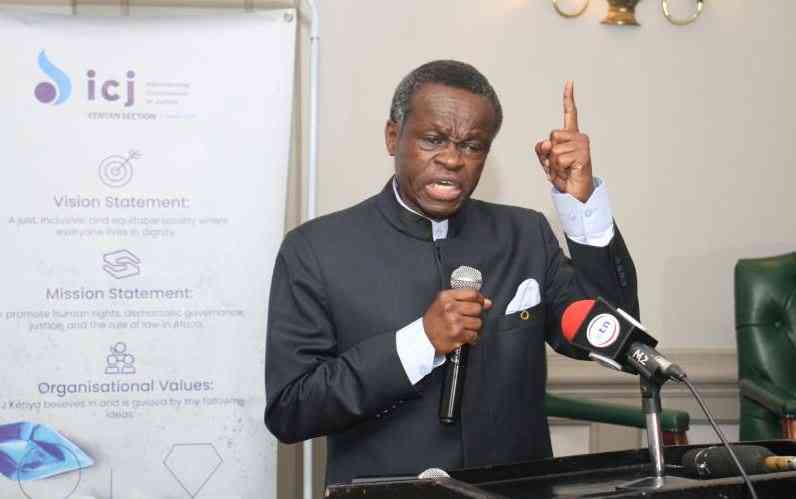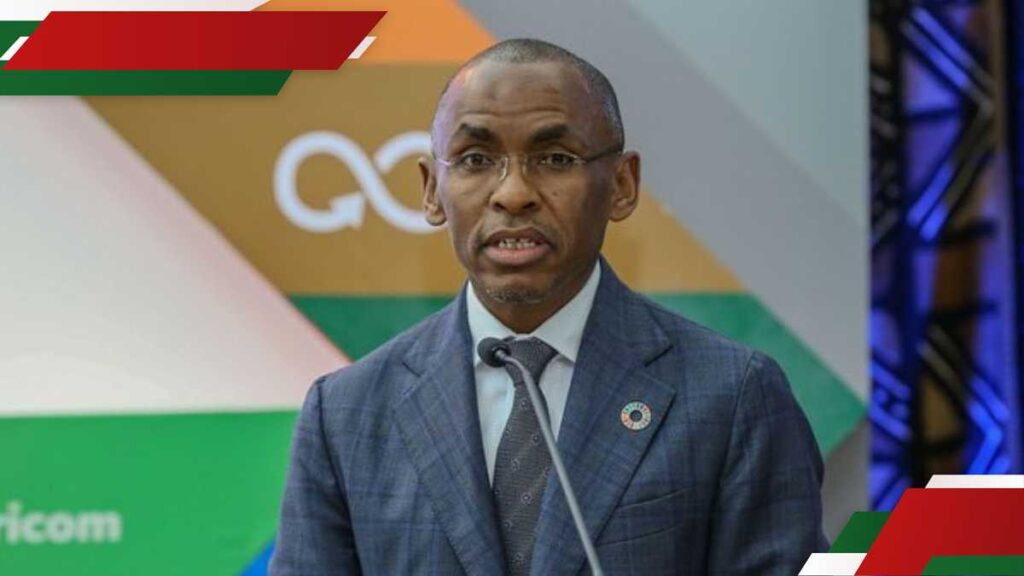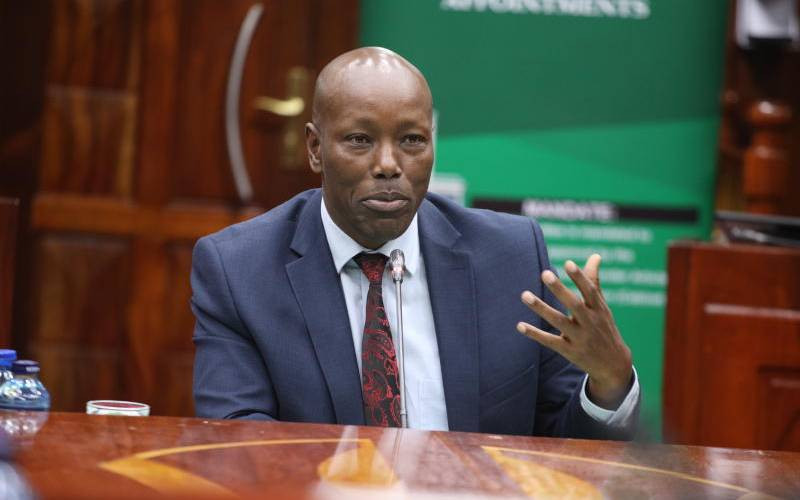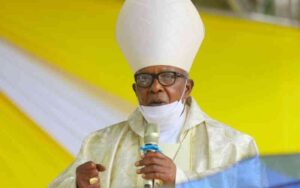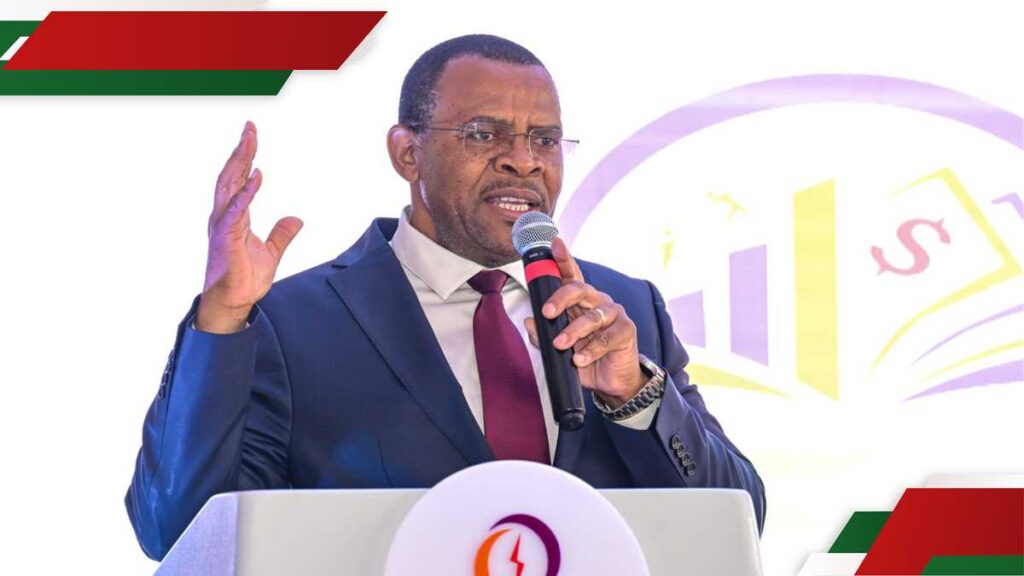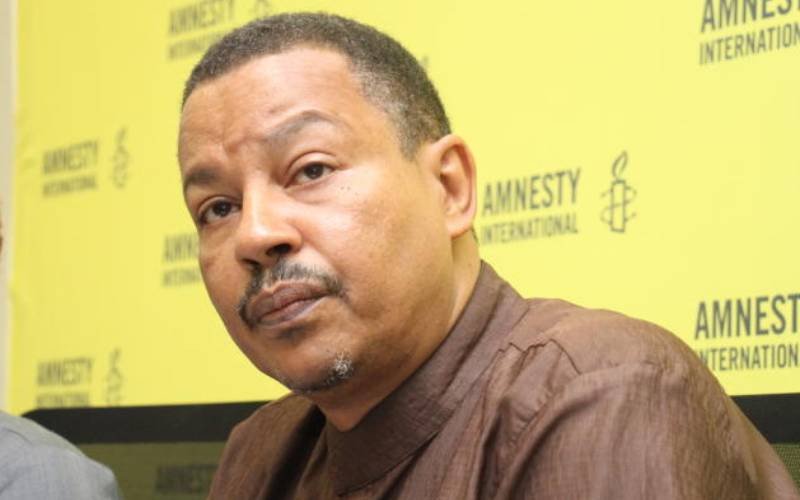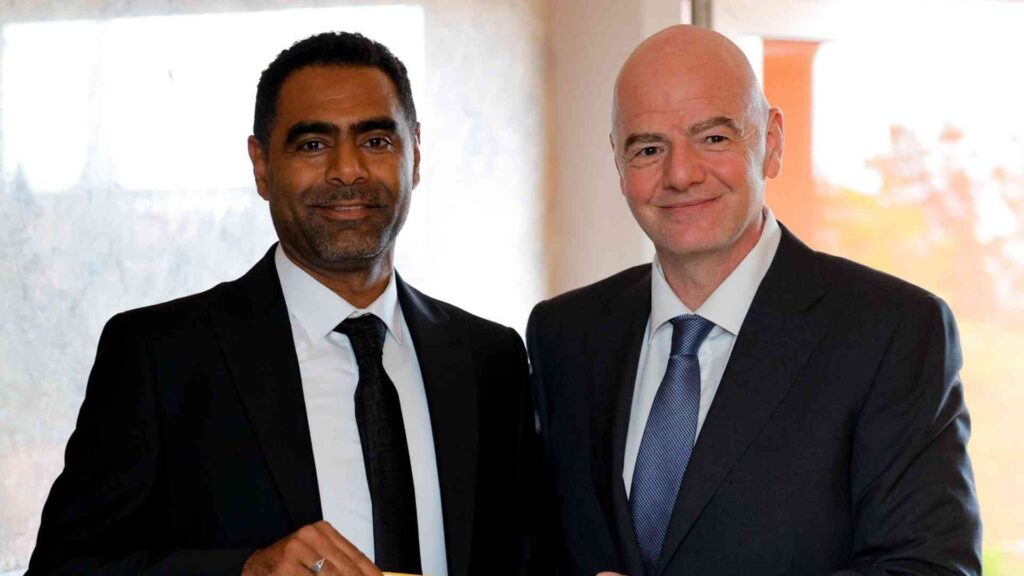As Kenya edges closer to the general elections, political formations are emerging by the day, and calls for youth participation in the country’s political arena are intensifying.
These appeals are rooted in the growing desire to liberate the nation from legacy politicians and the entrenched systems they represent.
Professor PLO Lumumba is the latest to joined the growing list of voices urging a youth-led revolution in the broader call to the Kenya’s youthful population to confront systemic rooting and mismanagement of public resources.
In a speech at an event that brought together civil societies, youth leaders and human rights players, Professor Lumumba called on the youth to ‘stand up and fight for their country’.
The Public forum dubbed Re-Imagining Democracy: People Powered Future Citizens Assembly, convened by International Commission of Jurists (ICJ) Kenya brought together civil society actors, legal experts, youth leaders, and democracy defenders.
Condemning the current state of democracy, leadership, and endemic corruption, Lumumba implored young people to reject ethnic politics and reclaim their country from the grip of greed and impunity.
“The time is now that we must demonstrate that our civic duty not only demands but requires that we make demands of those in power,” Lumumba declared.
He decried rampant corruption, the disintegration of the education system, and the collapse of the healthcare sector as some of the country’s most pressing challenges.
Lumumba’s sentiment echoed those of former President Uhuru Kenyatta who likened the African youth as ‘latter-day freedom fighters’, shifting focus on empowering the continent’s youthful generation.
“Young Kenyans, the task is yours. Choose you now, whether you want to be Kambas and Luos and Luhyas and Kikuyus, or you want to be Kenyans, with the tribe only being for cultural reasons,’ said Lumumba referencing to the tribal allegiances invoked during elections’.
In his keynote address at the Second Annual Guild Leaders’ Summit 2025, held at Makerere University in Kampala, Uganda, Kenyatta called on youth across the continent to “stand up for their countries,”
“Young leaders should embrace merit-based governance, where policies serve long-term national interests. You have the numbers, you have the time and you have the energy to get involved and stay involved in governance discussions until you effect the changes you wish to see,” Kenyatta urged the audience.
He added, “No one is coming to save us, and as the world turns increasingly inward, the places to seek refuge are rapidly disappearing.”
In his speech, Lumumba also criticised the so-called legacy politicians who, he argued, move effortlessly from one regime to the next without ideological commitment, calling them recycled individuals driven by nothing more than an “insatiable greed for power and the privileges it brings.”
Stay informed. Subscribe to our newsletter
“The forests change, but the monkeys remain the same with the same marbles. If you continue doing the same thing in the same way, thinking that will change, nothing will change,” he said, referencing Kenya’s revolving-door politics.
“I now see individuals across the country congregated, and you call them opposition. These were individuals who were in the Moi government, they were in the Kibaki government, they were in the Uhuru government. What is new about them?” he posed.
He went on, “I have been here and I’ve seen Kenyans repeatedly electing individuals in the name of democracy, who in other parts of the world would be completely unelectable.”
These calls for a youth revolution come at a critical time for Kenya, which is grappling with a rising public debt, unemployment, rampant corruption, suppression of dissent, and widespread dissatisfaction with governance.
In 2024, Kenyan Gen Z led nationwide protests against punitive tax hikes, signaling the youth’s readiness to challenge the status quo and push for systemic reforms.
This movement coincides with a broader continental shift. In Kenya, Uganda, Tanzania, and across the East African region, youth make up the majority. Their energy and activism are increasingly seen as a powerful resource to redefine the future.
Lumumba also took aim at Kenya’s flawed electoral system, drawing unfavorable comparisons with democratic transitions in countries like Canada and Germany.
He noted that in such developed democracies, transitions are peacefully managed within hours but Kenya remains stuck in disputes, tribal loyalties, and ballot tampering.
“Not so long ago, another snap election was called in Germany. Germany has 58 million past registered voters. Within one hour of the closing of the voting, the winning candidate had called the elections and the losing candidate had conceded,” he said.
“In our country, we would still be at Bomas of Kenya (national tallying center) deciding whether one plus one is two or three. We would have printed ballot papers whose cost is more expensive than our currency, and they would have been printed in Greece but we still can’t count,” Lumumba argued.
He further criticized the implementation of the 2010 Constitution, in which he played a significant role, arguing that the promise of devolution has been undermined by inefficiency and waste.
He questioned the logic of maintaining 47 counties, each bloated with bureaucracies and mismanagement, while countries with stronger economies and larger populations operate efficiently with fewer administrative units.
“We said Nairobi should not be a county. You made it a county. We said we should have no more than 18 counties. You created 47 devolved units, each with bloated bureaucracies and mismanagement.”
“How do you grow when a county raises Sh400 million a year but spends Sh2 billion? Even divine intervention can’t help. We can pray and fast all we want, but nothing will change until we do.”
Calling corruption “the most lucrative business in Kenya,” Lumumba condemned public officials whose unexplained wealth continues to rise unchecked.
“We have individuals whose salaries, even over a thousand years, couldn’t afford half an acre of land—yet they’re multi-billionaires. They’ve never won a lottery or made a discovery. We celebrate them because they’re from our tribe or because they’ve bribed us,” he lamented.
The International Commission of Jurists (ICJ) Kenya chairperson Protas Saende called for renewed collective action to safeguard the integrity of Kenya’s elections and democratic institutions.
“We have witnessed a new wave of civic awakening in Kenya. In the face of adversity, it was not just seasoned activists or institutions leading the charge, it was the youth,” said Saende.
“They filled the streets not with violence, but with voices, demanding accountability, transparency, and truth. They reminded us of something powerful: we are the system,” said.
Saende added, “That collective action can bend the arc of governance back toward the people. That those we elect, and the institutions we build, must work for us, not the other way around.”








